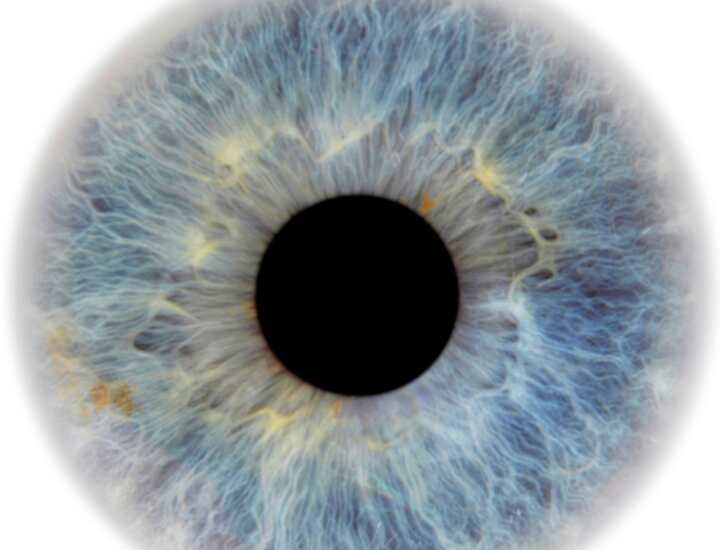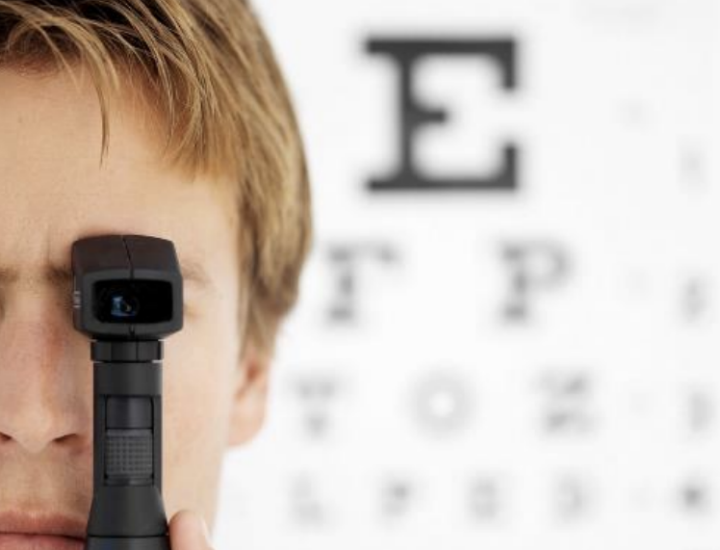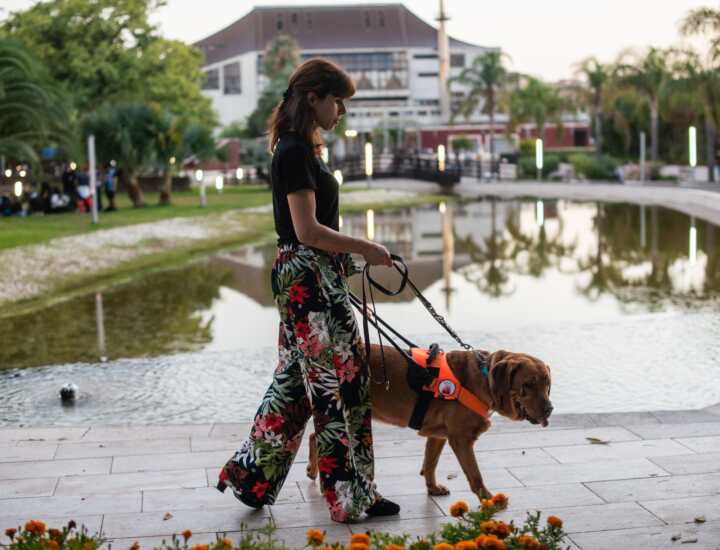
Understanding your condition
Inherited retinal diseases (IRDs) are genetic conditions that are caused by a variation in one or more genes. These variations result in the retina not functioning as it should, resulting in loss of vision over time. Some people may experience low vision from childhood or from their teenage years. Others may be diagnosed later in life with little indication they had an inherited retinal disease (IRD) previously.
IRDs are the leading cause of blindness in working age adults and although they are genetic conditions, you may be the only person in your family with the condition depending on the inheritance pattern. There are around 300 different genes that have been identified to cause IRDs and the symptoms can present very differently in each person.
The progression of vision loss will also vary from person to person. For some, the loss of sight is slow and there may be only a small decline over many years. Others may have periods of rapid loss, but with years of no apparent deterioration in between.
Following your diagnosis, you should be provided with information about your specific condition, however as there are many variables dependent on which gene is causing the IRD, the information they can give you on how your vision loss may progress could be limited.
Genetic testing can be a useful way to find out more about your specific condition. You can read more on genetic testing in the final section of this guide.
Finding the right ophthalmologist
It’s important to have regular check-ups with an ophthalmologist so that your progression can be monitored and also to ensure good eye health.
As there will be recurring appointments with your ophthalmologist, it’s important that you find one you feel provides adequate information and one you can have open communication with. Open communication between patient and clinician is vital to ensure the best experience for both parties.
Making a choice of ophthalmologist is very much a personal process but there are some things to keep in mind to help you in the decision-making process.
1. Seek a referral list from your GP or optometrist
- Asking for more than one option allows you to find the right fit. You can also seek recommendations from family and friends.
2. Research your ophthalmologist
- What medical conditions do they specialise in? Are they an expert in your particular IRD
- What are their qualifications?
- Did they study at one of the large and reputable institutions?
- Have they authored medical papers?
- Are they a member of any professional bodies?
3. Following your first meeting with the ophthalmologist, take the time to assess the interaction
- Did you feel at ease during the appointment?
- Did the appointment feel rushed?
- Did they provide information in a way that was easy to understand?
- Did you feel like you were listened to?
- Were your questions welcomed and answered sufficiently?
- Did you feel like you and the Ophthalmologist could work together as a team?
Like all healthy relationships, a good rapport is important. Taking the time to find an ophthalmologist you trust is worth it. It’s okay to look for a different ophthalmologist if you’re not happy with how your interactions are going.

Telling people about your diagnosis
Deciding when and how to tell people is very much a personal decision. For those who have a family history of IRD, they may find it easier to communicate as the condition is familiar. For those who have no family history, it may take longer to come to terms with the diagnosis and how to communicate it to friends and family.
Some people initially prefer to deal with the diagnosis alone. It is worth remembering that in most cases, people cope better when they feel they are not dealing with a problem on their own.
The following ideas may help with when and how to share your diagnosis:
- Wait until you feel ready to tell people.
- Think about who should know and tell someone that you trust first.
- Let people know what works for you. Those around you can be of more help if they understand when you need to talk or when you need some “personal space”.
- If your vision is impacting your work or study, consider informing your manager or institution, so that they can look into possible adjustments to your working environment to support you.
If you are unsure of how to have these conversations, you can contact Retina Australia for advice. You can contact us at info@retinaaustralia.com.au or 03 9650 5088 or 1800 999 870.


Support services and staying connected
The diagnosis of an IRD can have an impact on your mental health as you adapt to the current challenges and those ahead of you. It’s important to be connected to one or multiple support networks whether that be family, friends, or a peer support group of people in a similar situation.
Talking with friends and family about your IRD, the areas where you may be struggling and where you need support will empower them to help you. It can be difficult for those close to you who don’t have an IRD, to relate to the situation and truly understand what the challenges and frustrations are. Sharing your experience openly with them will allow them to help support you physically and mentally, and to know when and how to offer assistance.
Peer support groups can be incredibly beneficial for the shared experience. Whether or not you have a family history, some people will feel the need to connect with people their own age and at a similar stage of life to compare notes on the challenges, frustrations and share learnings. Peer support groups are available online for those who may be located in regional areas. Get in touch with Retina Australia to talk through how you can connect.
For those looking for mental health support, there are some helpful resources from the following organisations:
Beyond Blue: Anxiety, Depression and Suicide Prevention Support
Mind Australia: Community Mental Health Services
Headspace: National Youth Mental Health Foundation
If you feel you would like to talk one-on-one with a qualified professional, you can talk to your GP about a mental health plan and referral to a counsellor for support.
Independence
A common challenge for people who are vision impaired is being able to move around independently. Engaging a mobility instructor is a great way to learn mobility and orientation skills. In recent years, many technological advancements have been made to help assist people with mobility issues. These include devices such as the white cane as well as apps, voice assistants and other software.
Orientation and mobility
Orientation and mobility specialists can help you to learn useful skills through training in:
- How to use your remaining senses to determine where you are
- Use of residual vision and low vision devices
- Sighted guide techniques
- White cane techniques
- Route planning
- Problem-solving skills
- Techniques for crossing streets
- The use of public transport
- Access to assistance dogs

Travelling outside your home
Some tips for travelling outside of your home include:
- Pre-plan your route by identifying landmarks that are easy for you to detect and use them as reference points
- Plan your journey to avoid hours of darkness or adverse lighting conditions such as late afternoon sun
- Choose the easiest route to navigate by selecting orientation landmarks that are quickly identified by size, contrast, smell or terrain
- Organise a sighted guide if required
- Consider using public transport, taxi or Uber
- If travelling by bus and you are unable to read the bus timetable, almost all bus companies will have a customer help line. If you let them know you’re blind/vision impaired they’ll advise you how to get from A to B
- Be organised by preparing scenario plans, enlarged route maps, and phone numbers for assistance
- Carry a torch, magnifying glass or using a phone app to read print, to enhance lighting or to magnifying signage
- Control glare by wearing appropriate sunglasses or visors
Genetic testing
Genetic testing can provide an accurate diagnosis of which gene has the variation causing your IRD. The genetic diagnosis gives the patient the following:
- The inheritance pattern of the condition
- Prognosis, or medical progression of the condition
- The possibility of joining a patient registry
- Participating in an appropriate clinical trial
- Risk to other organ systems, in the case of syndromic diseases
- Accessing treatments should they be available (in the future)
- Informs patients about the potential risk of disease to other family members

A genetic test takes the form of a blood sample from a patient that is analysed in a laboratory. The DNA sequence is then screened for known IRD-causing variations.
Although over 300 IRD-associated genes have now been discovered, there is a possibility that your genetic test could come back inconclusive as there may be more genes causing IRDs that have not been discovered yet. However, having your data in a registry means that it can be reviewed each time a new gene is uncovered.
If possible, we recommend you undertake the genetic diagnosis process with a genetic counsellor. Genetic counsellors are health care professionals with specialist expertise in medical genetics and counselling. Their support and guidance through the process can lead to greater understanding for you of your condition and progression of your IRD.
Below is a list of public clinical IRD genetic testing providers in Australia. In some cases, these clinics will be able to access government subsidies to cover costs of genetic testing – please speak to your ophthalmologist regarding your own situation for the best advice on referrals.
- Victoria. Royal Victorian Ear and Eye Hospital – Contact Outpatient Booking Unit – Phone (03) 9929 8500 or via email at Patient.Services@eyeandear.org.au.
- New South Wales. The Sydney Children’s Hospital Network – Phone (02) 9845 3273 ,Email SCHN-CHW-ClinicalGenetics@health.nsw.gov.au
- Queensland. Princess Alexandra Hospital – Ophthalmology clinic – Phone 1300 364 155
- South Australia. Women and Children’s Hospital – Associate Chris Barnett, Clinical Genetics Service Phone (08) 8161 7375 (for women and children). Royal Adelaide Hospital – Dr Nicola Poplawski, Adult Genetics Unit Phone (08) 7074 2697 (for adults)
- Tasmania. Royal Hobart Hospital – Phone (03) 6166 8296
- Western Australia. Lions Eye Institute – Phone (08) 9381 0777, Email – carecentre@lei.org.au
- Northern Territory. Northern Territory Genetics Services (Victorian Clinical Genetics Services providing visiting services to Northern Territory) – Dr Chloe Stutterd, Email: ntgenetics@vcgs@ord.au
- National biobank. Australian Inherited Retinal Disease Registry and DNA Bank (AIRDR) – Phone (08) 6457 2866, Email scghmtp@health.wa.giv.au
If you would like further information about genetic testing, please refer to Retina Australia’s Genetic Testing resource webpage here.

Guide for parents of children diagnosed
If you’ve just learned that your child is, or will become, visually impaired, this is likely a difficult time for you and your family.
The guide for parents of children diagnosed with an inherited retinal disease may assist you in manage this new situation.

Guide for friends of the newly diagnosed
Understanding your friend’s condition, and how you can support them in both practical and emotional ways can be of great assistance. This guide also provides summary of Do’s and Don’ts which may be helpful.

Guide for financial and travel support
There are numerous support programs available that provide financial assistance for Australians with a disability due to low vision or blindness resulting from an inherited retinal disease. Each is independent of each other and should be applied for separately.
